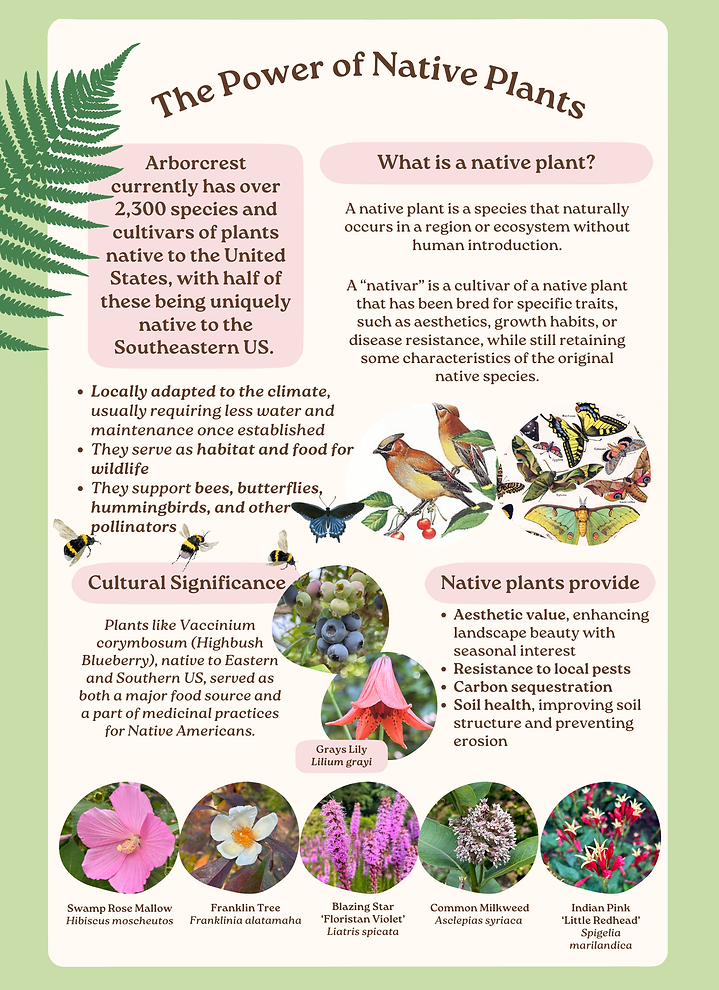Embracing Native Plants: The Heart of Arborcrest's Mission
Native plants are the unsung heroes of our ecosystems—plants that have thrived in a specific region or ecosystem without any human intervention. Native plants are more than just pretty faces in our gardens. They provide essential ecological services that support biodiversity. These species serve as a food source and habitat for a myriad of organisms, from birds to insects. They also play a significant role in improving soil health and preventing erosion. Plus, many native species hold cultural, medicinal, and culinary significance, connecting us to our heritage and the land.


Botanical gardens, like Arborcrest, are one major way we can conserve native plant species. Our approach involves research, trialing different cultivars, propagation, and education. We meticulously select which species to test based on their performance in our local ecosystem. By learning about native plants of the Southern Appalachians, we can better understand which species will flourish in our gardens, especially those that can withstand our local climate and harsh winters. We monitor the growth patterns, disease resistance, hardiness, and ornamental value of the plants we introduce by entering data into a comprehensive database. We study the specific needs of each species to ensure they thrive, whether that means placing them directly into our landscaped areas or conducting field trials.
Ironweed, Vernonia fasciculata
Blazing Star 'Alba', Liatris spicata


We’re beginning to experiment with various propagation techniques, including seed collection of some species and scale propagation of Gray’s Lily. Additionally, we perform divisions of rhizomes, tubers, bulbs, and corms of some native perennials to increase their populations. Many of our native plants are categorized as vulnerable, endangered, or even extinct, such as Franklinia alatamaha, commonly known as the Franklin tree. Arborcrest holds the largest collection of Franklin trees among all botanical gardens (10 living specimens). The decline of these species not only threatens local biodiversity but also disrupts the ecosystems that rely on them for balance.
By connecting people with the beauty and importance of native plants, we hope to inspire others to consider incorporating them into their own gardens. After all, nurturing native plants isn’t just beneficial for the environment; it also enriches our lives and strengthens our connection to the natural world.
Gray's Lily, Lilium grayi
Franklin Tree, Franklinia alatamaha


